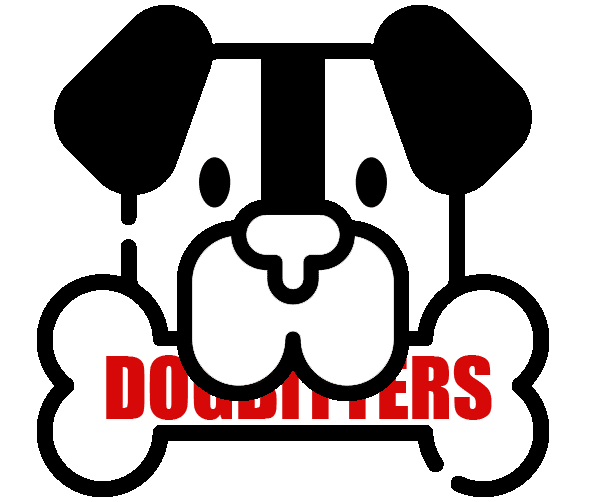Nutritionally complete homemade dog food must contain essential nutrients so as not to cause health problems. We can choose commercial dog food or we can prepare a diet at home to meet their needs.
A healthy and rich diet should contain protein, carbohydrates, fats, minerals, vitamins, and water. To stay healthy, our pets need to consume fairly large amounts of nutrients, hence the name macronutrients.
CONTENT:
- What are the nutrients for a nutritionally complete homemade dog food?
- Carbohydrates
- Vitamins
- Fats for nutritionally complete homemade dog food
- Minerals
- Water is very important for dogs
- What happens if my dog doesn’t get enough protein?
What are the nutrients for a nutritionally complete homemade dog food?
Carbohydrates, fats, and proteins are some macronutrients that are present in the daily diet and provide the body with calories to function. Calories are units of measure that are labeled on food labels, called kilocalories, and are called “kcal.”
The amount of calories needed for each animal depends on it, as in humans, depending on its size, breed, age, height, or how energetic it is. Protein and carbohydrates have four calories per gram, while fat has nine. To know how many calories a dog needs, you have basic equations that give you the recommended amount.
Nutritionists have come up with a formula called “Resting Energy Requirements” to calculate the daily calories our dogs need. However, this is a generic formula, created to meet the general needs of a dog, but its diet may require more than that.
Magic Formula: dog weight (in kg) x 30 +70 = calories / day
Ex: 9.7 kg x 30 + 70 = 361 calories / day
Carbohydrates
A nutritionally complete homemade dog food needs to contain carbohydrates, that contain sugar, and fiber. However, dogs do not have a strict need for carbohydrates, because their bodies can synthesize glucose from fats and proteins. However, they are important: they are the main source of glucose, the “fuel” that makes the whole bodywork and provides them with the necessary fiber.
Therefore, specialists recommend that carbohydrates be included in the pet’s diet. They can be taken from gluten-free fruits, vegetables, and cereals, but also from canned and moist foods. Most animals can store small amounts of carbohydrates in their livers, which are needed for a few hours between meals.
Vitamins
Although vitamins and minerals do not provide calories, they are vital for the normal development of the body and good metabolism. Vitamins help break down proteins, fats and carbohydrates at the cellular level.
For nutritionally complete homemade dog food, vitamins are needed in small amounts, but too few can lead to serious or even fatal health problems. They are of two types: fat-soluble (vitamins A, D, E, and K) and water-soluble (vitamins B and C). Fat-soluble ones are stored in the liver and fatty tissues, compared to water-soluble ones, which are not stored.
A dog’s body cannot absorb enough vitamins, so they need to be fed a balanced diet. Vitamins play a very important role: they regulate the level of calcium and phosphorus in the blood (vitamin D); help its coagulation (vitamin K), increase the immune system (vitamin A) and maintain the proper functioning of the nervous system (Vitamin B12).
Fats for nutritionally complete homemade dog food
Fats are complex mixtures of fatty acids called glycerides, and all animals need a lot of fat in their diet for the proper development of their bodies. Certain fatty acids are essential for energy storage, help absorb vitamins, protect internal organs, and regulate body temperature.
The category of fats also includes Omega 3 and Omega 6 fats, which we find in fish, fish oil, flax, or hemp vegetable oils, all necessary for good growth and health.
Fats contain twice as many calories as protein and carbohydrates. But when an animal is fed too many calories, fat can be stored indefinitely, and the quadruped can gain weight if we do not check its diet. These fats can affect your pet’s pancreas and gastrointestinal system.
Minerals
Minerals are non-organic compounds that the body needs to function at its maximum capacity. They are the main component of the bones and also of a nutritionally complete homemade dog food.
They are a critical part of red blood cells that carry oxygen to the brain, help heal wounds, quickly, balance fluid levels, and are essential for the normal contraction of muscles, including the heart.
Minerals are not produced by the body, so they are essential in a dog’s diet. There are two classes of minerals: macro minerals (calcium, magnesium, phosphorus, sodium, potassium, and chlorine) and microminerals (iron, zinc, copper, selenium, and iodine). Like protein, minerals are needed in larger quantities in puppies and pregnant females than in an adult dog.
Water is very important for dogs
Water has no calories, only a small amount of minerals, but it must be consumed in considerable quantities for the proper functioning of the body. Always provide your dog with a bowl of clean water to hydrate them. An animal dies from dehydration rather than a lack of food.
What happens if my dog doesn’t get enough protein?
Pets that do not have enough protein can lose weight. Their muscles can atrophy. They have poor digestion and they can accumulate fluid in their lungs or stomach. Protein deficiency due to diet is rare and does not occur when we feed our dog or cat dry commercial food specifically for them.
Animals fed without animal protein (e.g. vegetarian) or those fed with home-cooked food that is not carefully selected for the specific nutrient needs of the animal, have a higher risk of protein deficiency.

